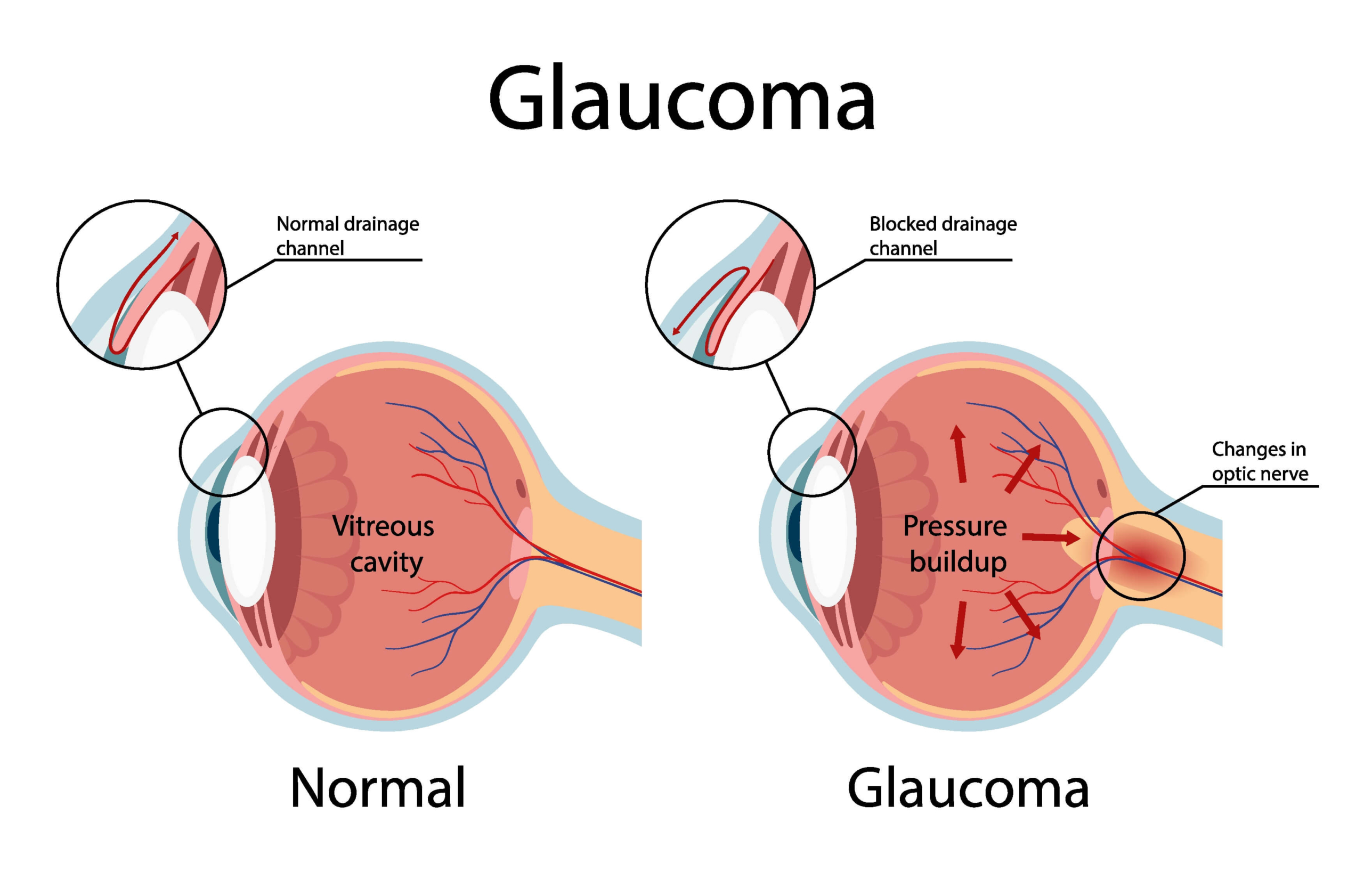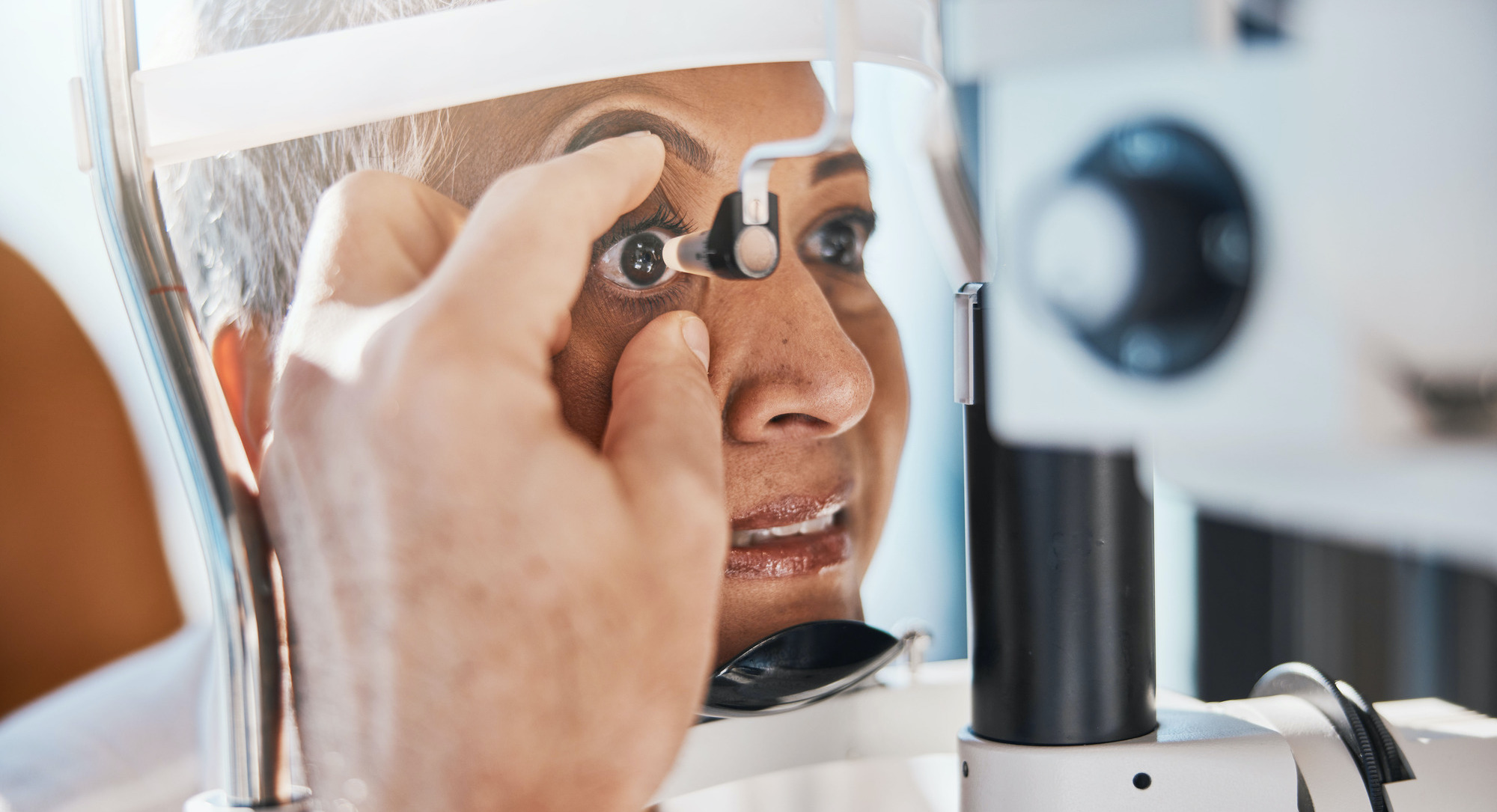Understanding glaucoma
Glaucoma is a group of eye conditions that can damage the optic nerve — often, but not always, due to elevated intraocular pressure (IOP). It usually develops slowly and without noticeable symptoms at first, which is why many people don’t realize they have it until vision loss has occurred. Regular eye exams are essential for early detection and management.
Common forms include primary open-angle glaucoma and angle-closure glaucoma. Your doctor will determine the type and tailor a treatment plan to reduce pressure and help protect the optic nerve.
- Often symptom-free in early stages—don’t wait for vision changes.
- Detected with pressure checks, optic nerve evaluation, OCT imaging, and visual field testing.
- First-line treatments commonly include prescription eye drops; laser and surgical options are available if needed.

- Family history of glaucoma
- Elevated eye pressure (IOP)
- Thinner corneas or optic nerve changes
- Age 40+ or certain systemic/ocular conditions
Your doctor will consider these and other factors when recommending follow-up and treatment.
- Comprehensive eye exam and eye pressure measurement
- Optic nerve assessment and retinal imaging (e.g., OCT)
- Visual field testing to evaluate side vision
- Angle evaluation when appropriate
These tests help establish a baseline and monitor change over time.

Treatment options
Most patients start with prescription eye drops designed to lower eye pressure by reducing fluid production or improving fluid outflow. If pressure remains too high, we may recommend laser therapy to enhance drainage. When necessary, surgical approaches—including minimally invasive glaucoma surgery (MIGS) or other procedures—can further control pressure and help slow disease progression.
Follow-up & ongoing care
Glaucoma care is an ongoing partnership. We’ll set a personalized schedule for visits and testing to monitor your pressure, optic nerve health, and visual fields, adjusting your plan as needed to protect your vision.
- Schedule a comprehensive exam
- Discuss your risk factors and goals
- Review eyedrop, laser, and surgical options